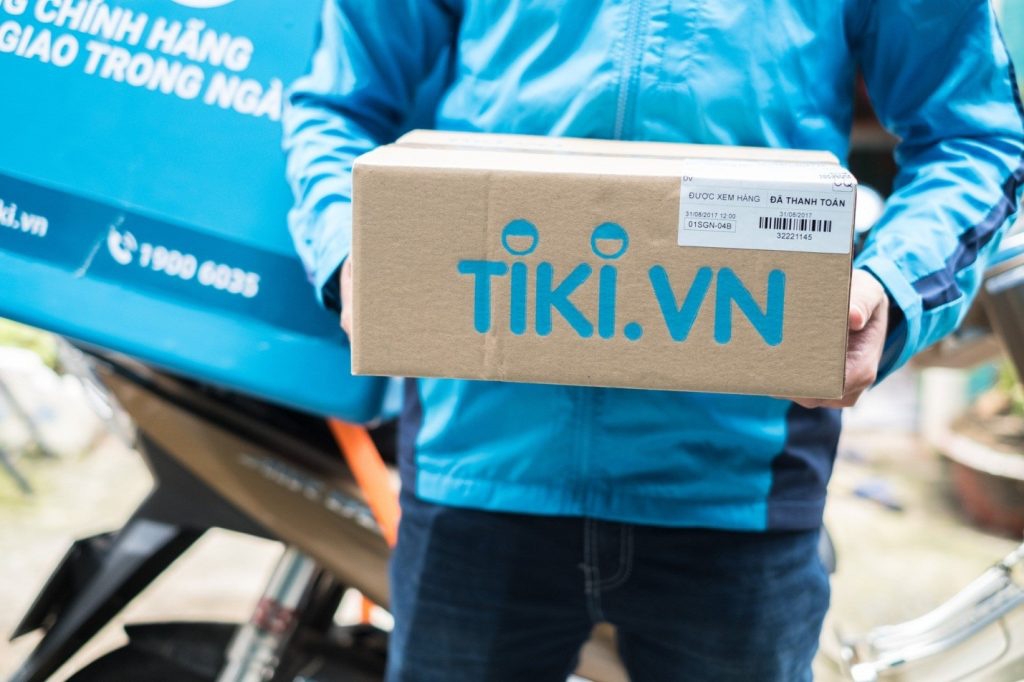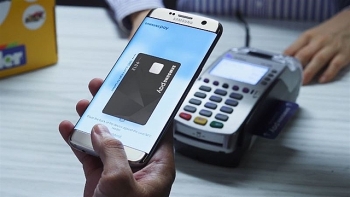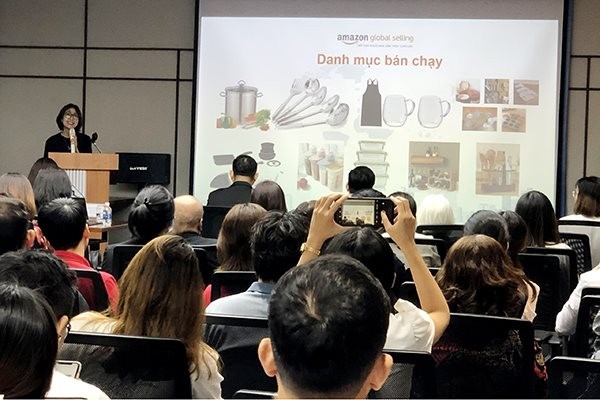E-commerce becomes the key factor in Vietnam retail industry
| 5 proper ways to keep physical distance while shopping | |
| 6 tips on grocery shopping during COVID-19 season | |
| Young consumers alter spending habits due to COVID-19 outbreak |
 |
| The slowdown in retail has accelerated e-commerce and online shopping which play an important role in sustaining many stores during the outbreak (Photo: Vietnamnet) |
According to the General Statistics Office, the retail sales of accommodation, catering and travel services decreased by 9.6% and 27.8% respectively in 1Q2020 compared to the same period last year.
The number of visitors coming shopping at the Shopping Mall in HCMC and Hanoi, as noted by CBRE, decreased by approximately 80% during the epidemic period.
According to CBRE Vietnam's forecast, if the disease can be controlled in the second quarter of 2020, it is likely that the vacancy rate in the central area will be stable until the end of the year while the vacancy rate in the non-central area will likely increase slightly by 1-2 percentage points.
In case the epidemic lasts until September 2020, the vacancy rate will increase in both markets, of which the vacancy rate in the non-central area will grow stronger, from 5-7 percentage points and at the same time, thefuture supply in the HCMC will decrease by 76% and there may not be any new projects in Hanoi, according to The Leader.
 |
| E-commerce and online shopping grew sharply |
In the context of declining retail sales, e-commerce and online shopping grew sharply, supporting the trading activities of many stores during the outbreak.
In Vietnam market, among the big names in the field of e-commerce, Tiki has grown at the fastest speed and recorded a record of 4,000 orders/minute, SpeedL and Saigon Co.op have increased by multipliers in online sales channels, on the other hand, car-hailing apps have enabled "grocery shopping" services to serve customers' home shopping needs.
In the Asia Pacific market, multi-channel and online retail perform well during the season, from consumer products, cosmetics to luxury goods such as cars, or services such as sightseeing. museums, real estate tours...all can use the online retail platform.
In the long run, the growth of e-commerce revenue will be a solid foundation for any future development in the retail market.
COVID-19 has an impact on the market of townhouses and shopping centers. The ground clearance at shopping centers is not much due to the tenants receiving support for reducing or exempting rents during the social separation period.
 |
| Tiki has grown at the fastest speed in Vietnam market (Photo: VnReview) |
Vo Thi Phuong Mai, associate director and head of retail services at CBRE Vietnam claims COVID-19 has negatively impacted offline traffic but at the same time created many opportunities for growth for small- and medium-sized models such as convenience stores, pharmacies, and e-commerce.
“E-commerce is the bright spot and is emerging as a lifeline helping physical stores during the outbreak. The omni-channel capability will be more resilient and may even outperform other channels,” Mai said.
Vo Thi Khanh Trang, head of research at the Ho Chi Minh City branch of Savills Vietnam, also agreed that COVID-19 has accelerated the switch to online shopping.
“Online shopping will have a negative impact on brick-and-mortal stores in shopping centres as well as in shophouses. Some impacts may be longer-term, accelerating technology-driven changes in the ways we live, work, and shop, while other effects are likely to be only temporary. Rents will vary based on market conditions. Hence, developers and landlords will need to consider short-term support for tenants,” Trang said.
In the first months of 2020, together with the impact of Decree No.100/2019/ ND-CP setting huge fines for drink driving from January 2020, COVID-19 has added to the hit to the F&B industry.
The COVID-19 outbreak is a turning point forcing F&B owners to set new business directions and landlords to consider adjusting rental rates. Recently, many restaurant tenants have decided to terminate when their lease contracts expired, while some who want to keep good locations have either closed temporarily or negotiated a reduction in rent with landlords.
At leased shophouses, many landlords have also begun to support tenants in rent, with some exempting a month of rent for restaurants or giving 30-50 per cent rent reductions for the next couple of months for convenience stores.
According to the General Statistics Office of Vietnam, sales in F&B, hotel services, and tourism services decreased by 9.6 per cent in the first quarter of 2020 and by 27.8 per cent on-year, respectively, reported by VIR.
 | Ha Noi encourages cashless payment, e-commerce Ha Noi plans to encourage the use of cashless payments as part of efforts to further develop e-commerce in the city. |
 | E-commerce in Vietnam flourishes as people limit going out during epidemic season As Vietnamese people tend to shop online to avoid possible contraction at crowded places, the e-commerce platform has increased at least 20% in a couple ... |
 | Vietnam’s e-commerce market to surpass US$17bn in 2023: GlobalData Vietnam's e-commerce market is projected to hit US$17.3 billion in 2023, from US$9.4 billion in 2019, according to a forecast from data and analytics company ... |










